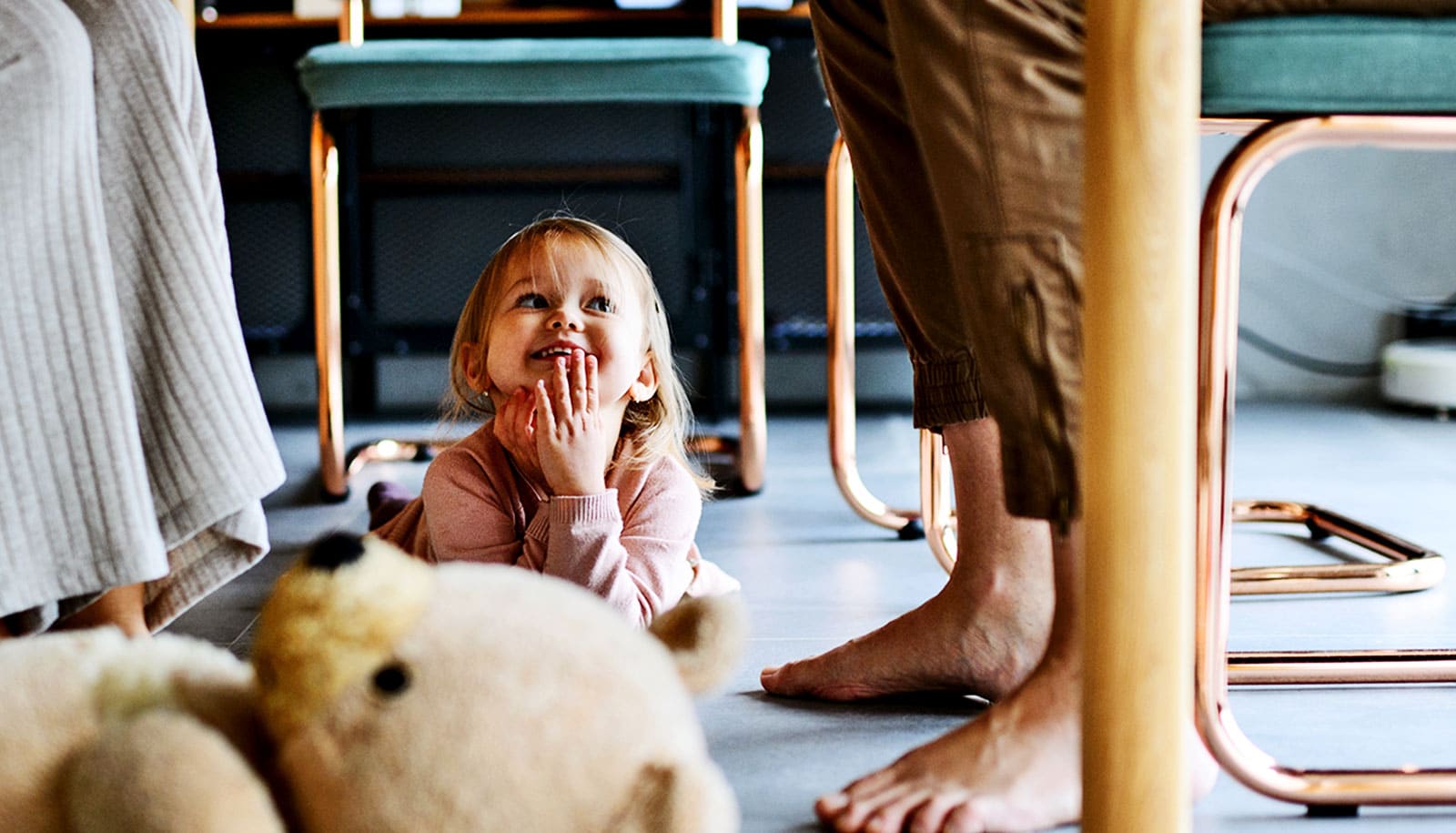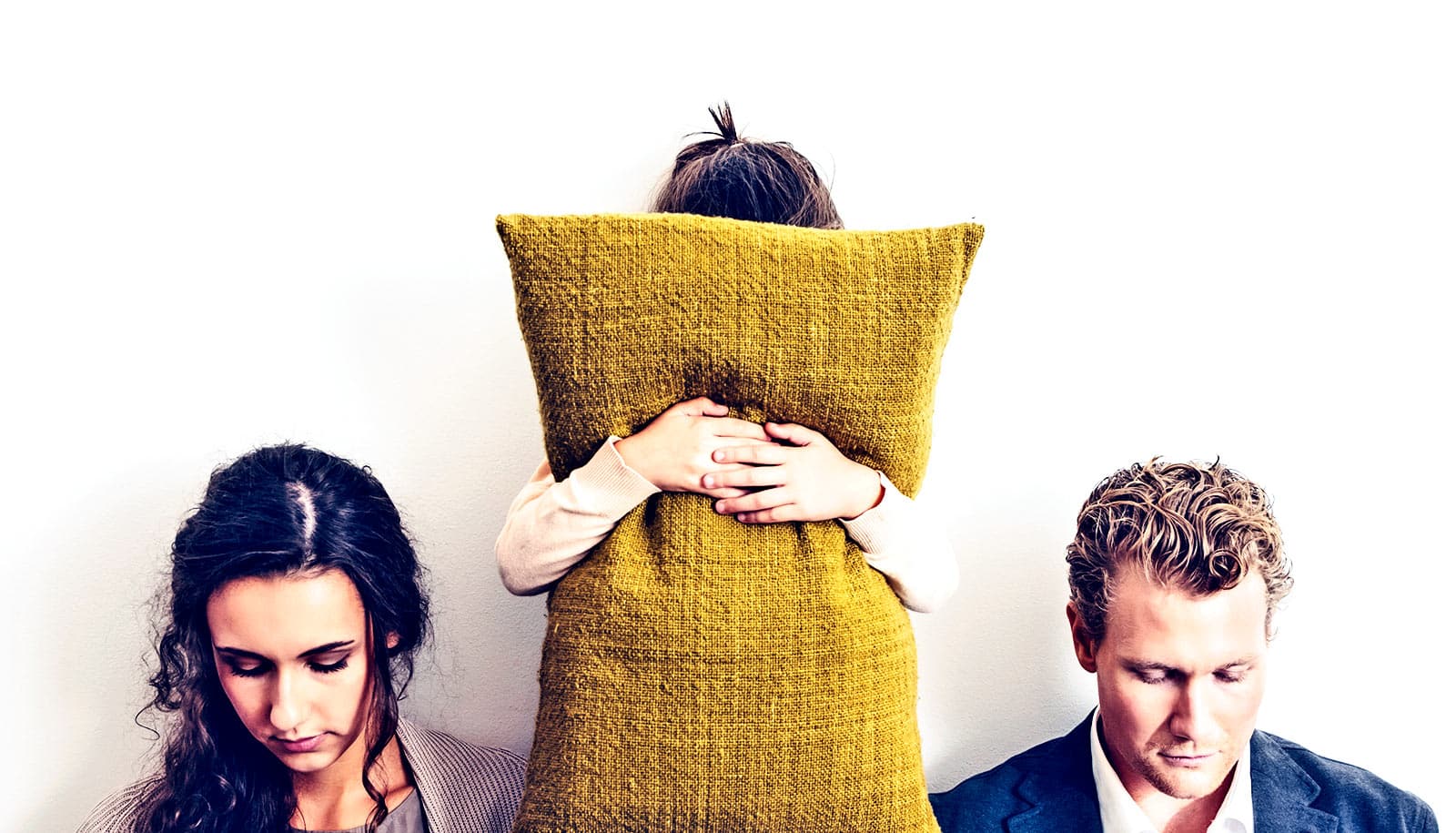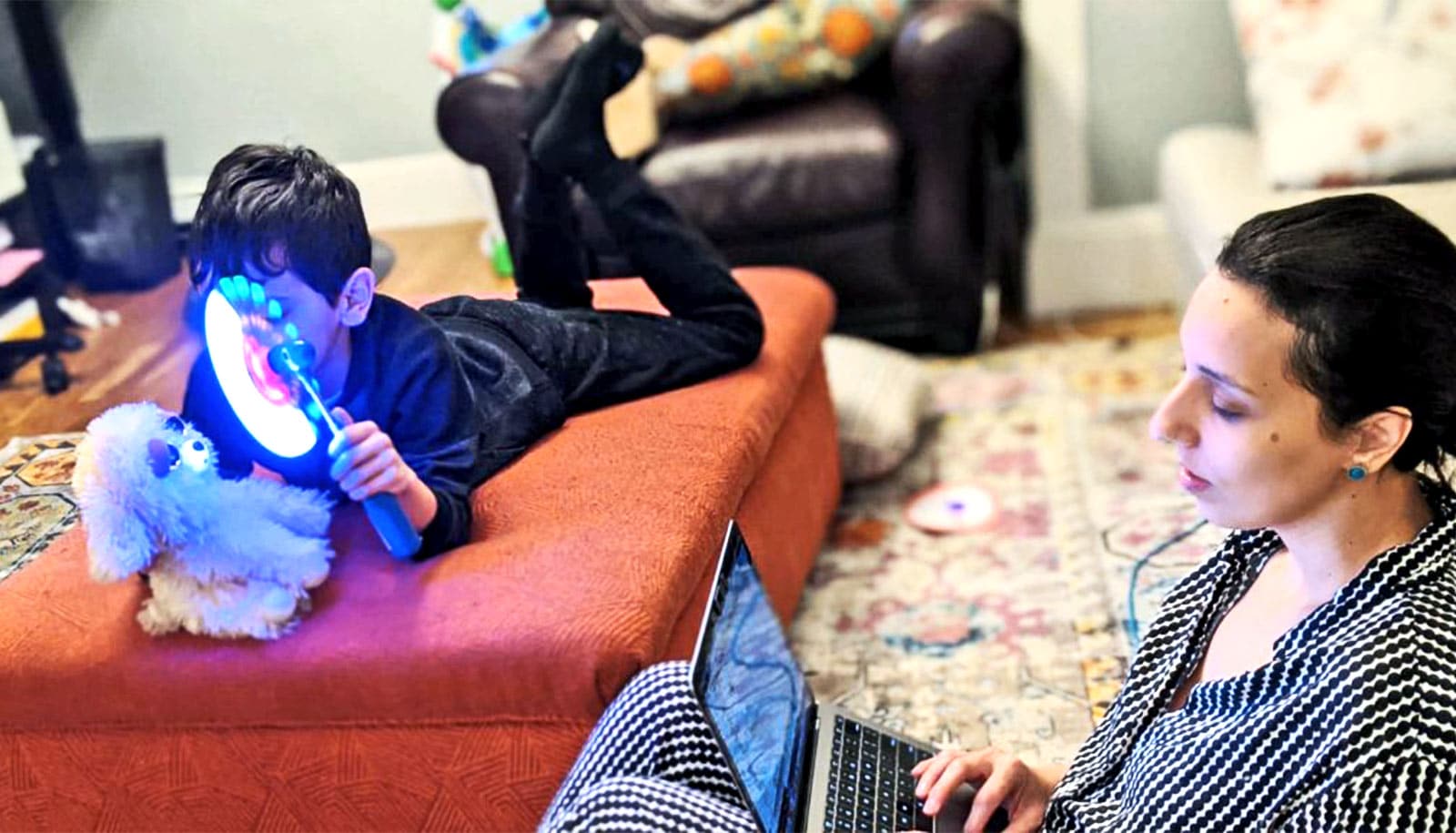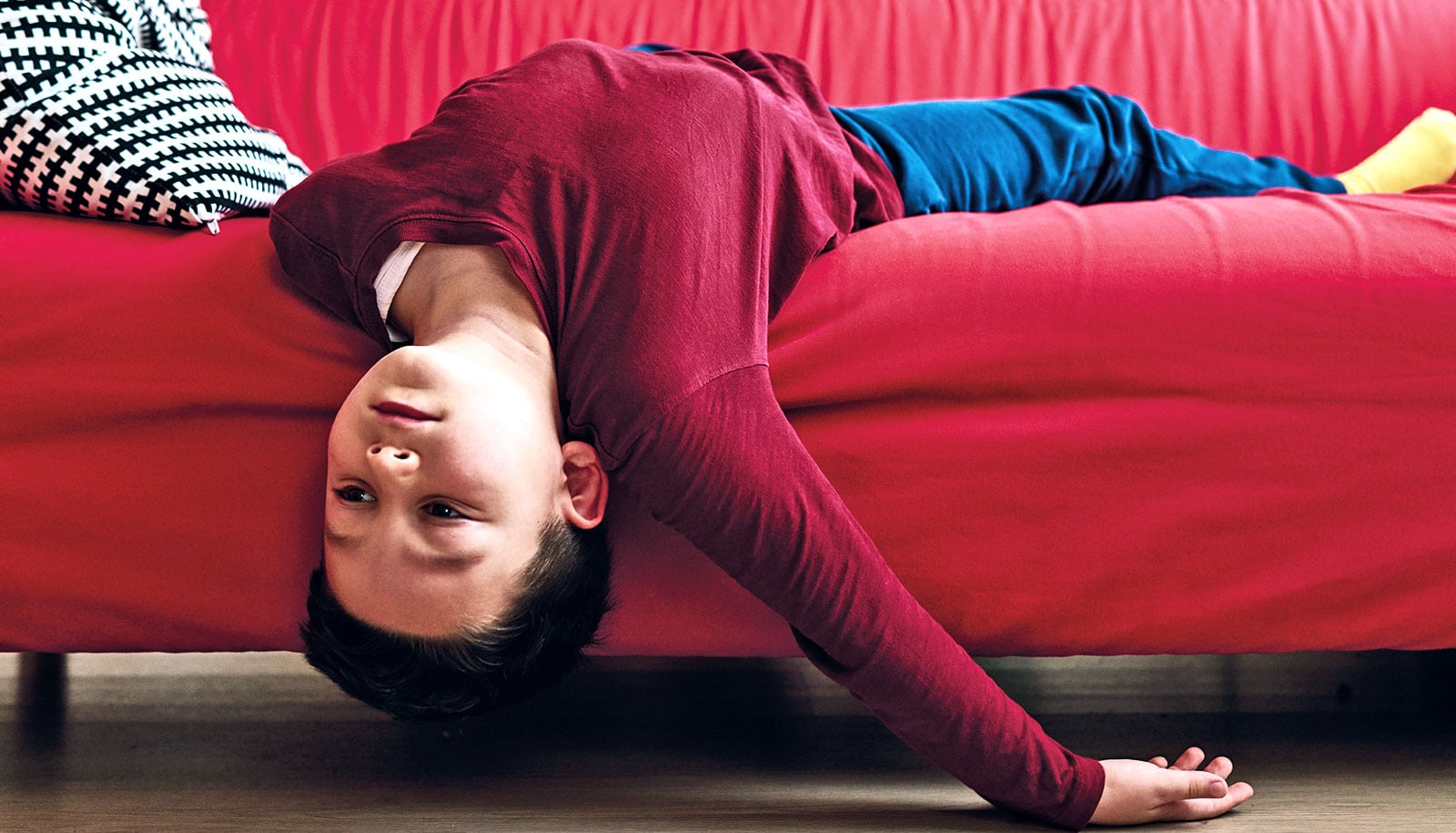Attending school on Zoom and quarantining from family and friends has children struggling through the COVID-19 pandemic, but, surprisingly, having kids at home may help adults feel less distressed, researchers report.
Adults in households with children have fewer mental health problems than other adults living without kids, a new study shows. Child care—beyond the effect of larger household size—may actually reduce depression during pandemic social isolation.
“In other words, parents/caregivers may be struggling, but not more so than everyone else,” says lead author Shawna Lee, associate professor at the University of Michigan School of Social Work and director of the Parenting in Context Research Lab.
Lee and colleagues say they believe it’s possible that caring for children may provide increased social connections or an increased sense of purpose, both of which may contribute to improved mental health. These questions, while not specifically addressed in the current study, may need to be explored in future research.
The study, published in the Journal of General Internal Medicine, used data from mid-2020 that included answers to health questions about the respondents’ anxiety and depression. Adults aged 18-64 were included in the sample of nearly 600,000 respondents.
During the 12-week study, about 35% of the respondents reported having anxiety, while 24% felt depressed. These rates were much higher than pre-pandemic levels. While women were more likely to feel anxious than men, the household-with-children status had no effect on anxiety.
Male caregivers may be vulnerable to pandemic worries, such as employment loss, which health care professionals should monitor, the researchers say. The researchers also found that adults who are not married and have low household income are more at-risk for anxiety and depression.
Source: University of Michigan



